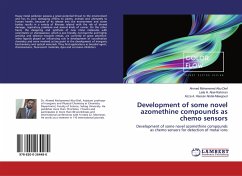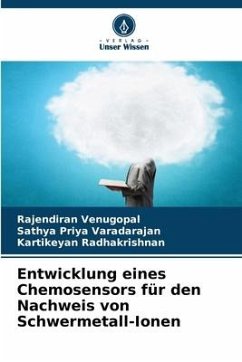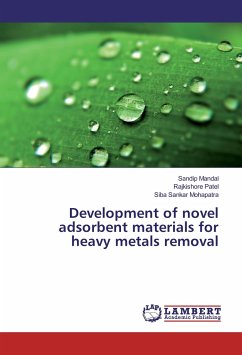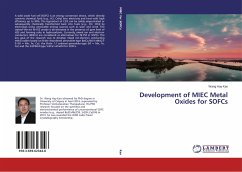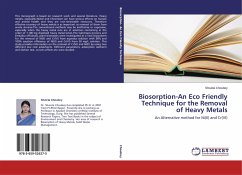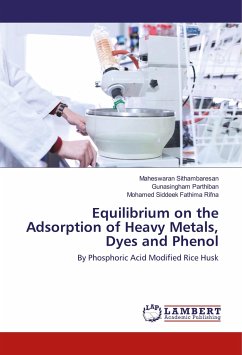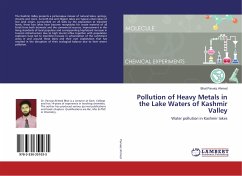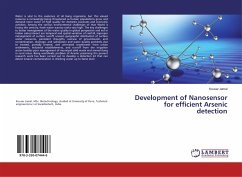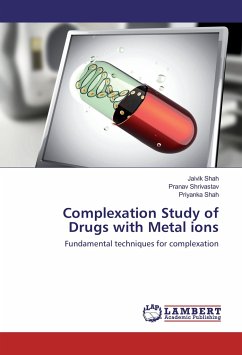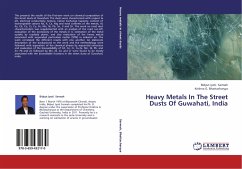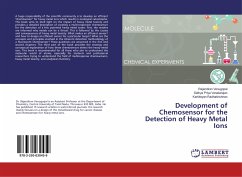
Development of Chemosensor for the Detection of Heavy Metal Ions
Versandkostenfrei!
Versandfertig in 6-10 Tagen
24,99 €
inkl. MwSt.

PAYBACK Punkte
12 °P sammeln!
A huge responsibility of the scientific community is to develop an efficient "chemosensor" for heavy metal ions which results in ecological catastrophe. This book aims to shed light on the impact of heavy metal toxicity and provides a detailed description of creating a multi-responsive chemosensor for the detection of a few potential heavy metal toxins. First, the readers are informed why metals can be a threat. This is followed by the causes and consequences of heavy metal toxicity. What makes an efficient sensor? and how to design an efficient sensor for a particular target? What are the con...
A huge responsibility of the scientific community is to develop an efficient "chemosensor" for heavy metal ions which results in ecological catastrophe. This book aims to shed light on the impact of heavy metal toxicity and provides a detailed description of creating a multi-responsive chemosensor for the detection of a few potential heavy metal toxins. First, the readers are informed why metals can be a threat. This is followed by the causes and consequences of heavy metal toxicity. What makes an efficient sensor? and how to design an efficient sensor for a particular target? What are the concepts and principles involved in the inherent detection methodology of a fluorescent chemosensor? These questions are answered in the first and second chapters. The third part of the book provides the strategy and conceptual explanation of how these chemosensors detect the heavy metal ions. This book is recommended for all those who aim to understand the molecular world of atoms, especially for students and professional researchers trying to understand the field of multiresponse chemosensors, heavy metal toxicity, and analytical chemistry.



